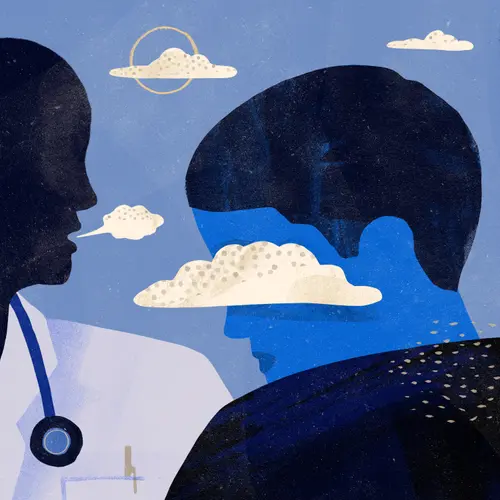When back pain affects you or a family member, you might despair of ever getting a good night's sleep. Pain can disturb the sleep your family needs, night after night. But experts say that with proper treatment, the chances are very good that you or your loved one can get relief from back pain and enjoy normal sleep. Below, find out about treatments and lifestyle tips for better sleep.
Why Sleep Is Important
The inability to get a good night's sleep hurts -- literally. Chronic back pain prevents you from sleeping well. You can wake up hurting even more.
What's worse, studies have shown that not getting enough sleep may actually make you more sensitive to pain. It's a vicious cycle. Back pain can make it harder to sleep -- and when you can't sleep, your back pain may be worse.
Other Causes of Sleep Problems When You Are in Pain
Anxiety and depression can make it hard to fall asleep or stay asleep, and the consequent sleep loss can lead to worse pain. Anxiety and depression themselves can also increase a person’s sensitivity to pain.
Some breathing-related sleep disorders are associated with obesity -- and obesity is also linked with back pain. Sleep disorders like obstructive sleep apnea interfere with normal sleep patterns, leading to insufficient sleep and poor sleep quality. Sleep apnea can also be caused or exacerbated by narcotic painkillers, which some people are prescribed for severe back pain.
Limb movement disorders, such as restless legs syndrome, might further disrupt the normal sleep pattern.
Fibromyalgia can cause pain throughout the body. It's also linked with fatigue, anxiety, and sleep problems.
Self-medicating with alcohol might numb your back pain and help you fall asleep at first. But it's also likely to wake you up a few hours later, because it interferes with good sleep. In the morning, you're bound to get out of bed tired, cranky, and hurting because the quality of sleep is poor.
Many prescription medications can impair the quality of your sleep. For instance, some medications for conditions such as high blood pressure, epilepsy, and ADHD may also cause sleep problems. Check with your doctor if you think your medicine may be interfering with your sleep.
Medications That Improve Sleep and Reduce Chronic Back Pain
Some medications can help you get sleep while helping with your chronic back pain. They should be used as part of a more comprehensive and widespread program of pain management and only under the direction of your doctor. The goal of medication should be to help you develop a more normal sleep pattern.
Over-the-counter pain relievers, such as aspirin, Tylenol (acetaminophen), or Advil or Motrin (ibuprofen) can be effective for short-term use. These drugs are also available in a "PM" version that includes a medicine to help you sleep. Naproxen sodium (Aleve) is long-lasting and may offer pain relief throughout the night. It also is available in a "PM" version. Use these medications only as directed.
Newer sedatives, including zolpidem (Ambien), suvorexant (Belsomra), eszopiclone (Lunesta), and zaleplon (Sonata), are prescription medicines that can help you sleep.
Prescription drugs for back pain include antidepressants, such as doxepin or duloxetine (Cymbalta), or a medicine that combines antidepressant and pain reliever effects, such as amitriptyline, or a muscle relaxant, such as cyclobenzaprine (Flexeril).
The goal of medication should be to help you develop a more normal sleep pattern.
Lifestyle Changes for Chronic Back Pain and Sleep Problems
Here are some tips for getting a good night's sleep with chronic back pain:
Minimize stress. Stress is the major cause of insomnia. It is also associated with chronic back pain.
Limit or eliminate caffeine. Even moderate caffeine use can cause insomnia and sleep disturbances.
Avoid eating heavily before bedtime. A heavy meal can cause acid reflux (heartburn) and keep you awake.
Don't self-medicate with alcohol. It's worth restating that alcohol impairs the quality of sleep.
Do some soothing exercises. Try relaxation techniques and ask your health provider or physical therapist about helpful exercises that you can do to help your back early in the day.
Choose a comfortable mattress and pillow. You don't have to spend thousands of dollars on a mattress. Studies show that a medium-firm mattress is best for most people. The key is to use whatever is comfortable for you. If your mattress is too firm, you can add an egg crate mattress pad. Pillows come in all shapes and sizes. Find the one that's right for you.
Sleep in a comfortable position, although try not to sleep on your stomach. It can cause you to arch your back. Bending backwards often aggravates chronic back pain. To break the habit, wear a sleep shirt with a pocket in front and put a tennis ball in it. For most people, the best position is to lie on your side in a fetal position with a pillow between your legs. If you prefer to lie on your back, put a pillow under your knees.
Establish a bedtime routine. Try to go to bed at the same time each night. Follow a routine, such as setting the alarm, putting on your pajamas, and brushing your teeth. Do not read, work, or watch TV in bed.
Get Rid of Chronic Back Pain
While the best way to get a good night's sleep is to get rid of chronic back pain, this is not always possible. Other factors such as stress, anxiety, and depression that affect sleep and pain might also need attention and treatment. Many people put up with pain, when in fact most back pain can be helped and treated successfully. Don't give up on finding a treatment that can work for you.



